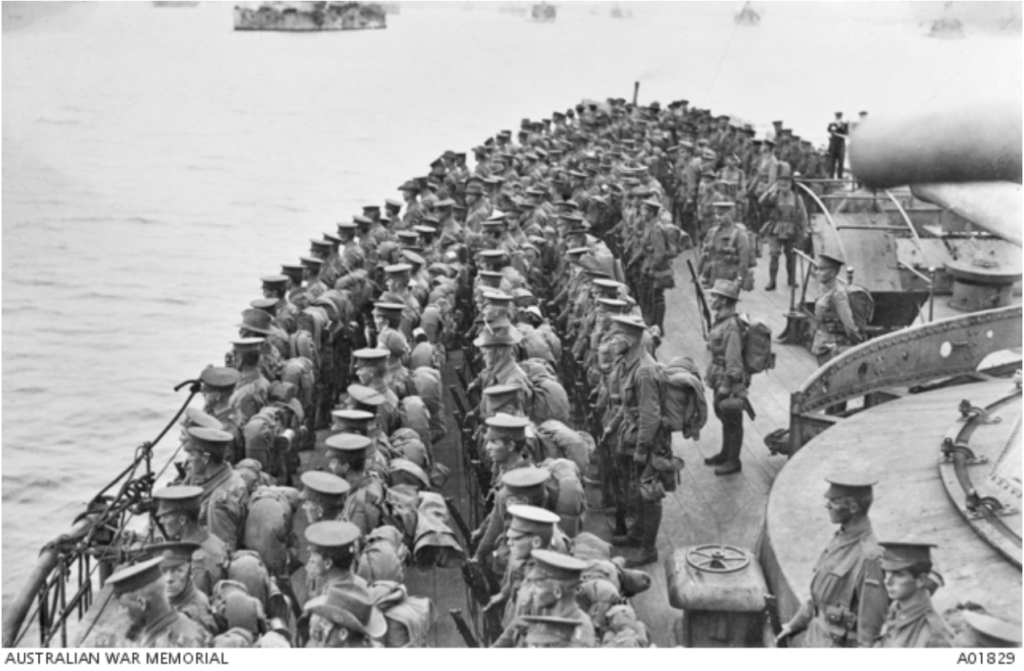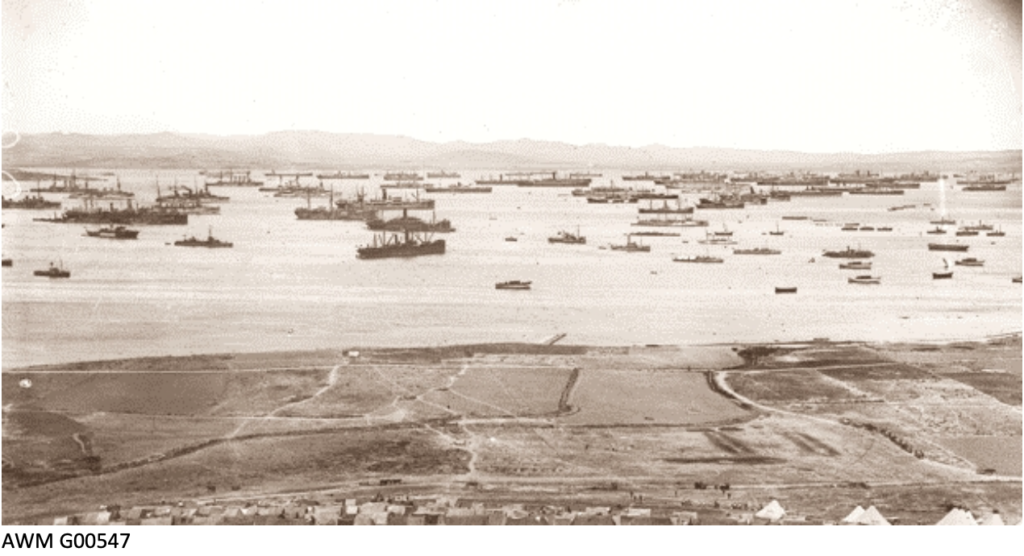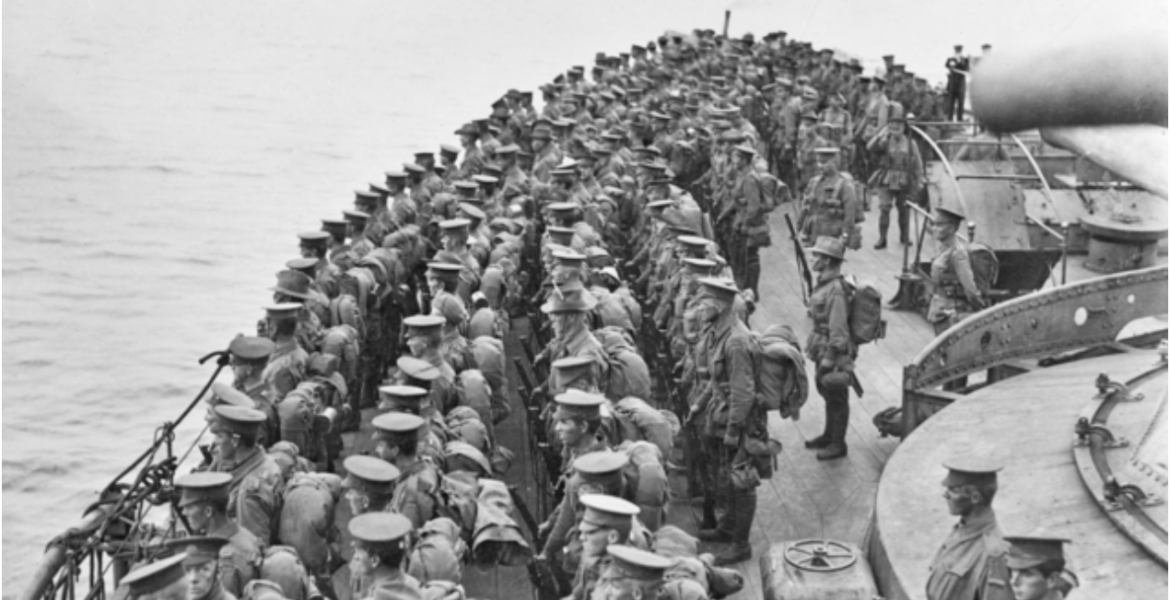
One hundred and five years ago, Australian soldiers were assembled on a small Greek island of Lemnos along with other allied troops gathered to embark on the Gallipoli campaign. For many Australian soldiers, this was the last sight of peace they would see.
British Laureate John Masefield wrote his account of the war in his book ‘Gallipoli’ which went on to become a classic. Masefield was one of the first to tell of the events that made ANZAC soldiers famous all over the world.
This abridged version of Masefield’s account of the departure was published in a NSW Dept of Education school magazine 1946 – it encapsulates the mood of the day!

Excerpt from 'The Departure from Lemnos (4 April 1946)
In April,1915, the British I and Australian soldiers had been collected at Mudros Bay, on the small island of Lemnos, a few miles from Gallipoli, in order to prepare for the landing on the Peninsula.
On Friday, the 23rd April, the weather cleared, so that the work could be begun. The land of Lemnos was beautiful with flowers at that season, in the brief Aegean spring, and to seawards always, in the bay were the ships, more ships; they seemed like half the ships of the world. Now, in all that city of ships so busy with passing picket-boats, and noisy with the labour of men, the up-getting of the anchors began. Ship after ship, crammed with soldiers, moved slowly out of harbour in the lovely day, and felt again the heave of the sea. No such gathering of fine ships has ever been seen upon this earth, and the beauty and exultation of the youth upon them made them like sacred things as they moved away. All the thousands of men aboard them gathered on deck to see, till each rail was thronged. These men had come from all parts of the British world-from Africa, Australia/Canada, India, the Mother Country, New Zealand, and remote island in the sea. They had said goodbye to home that they might offer their lives in the cause we stood for; and, as they moved out, all they felt was a gladness of exultation that their young courage was to be used. They went like kings in a pageant to the imminent death. As they passed from moorings to the man-of-war anchorage on their way to the sea, they cheered and cheered till the harbour rang with cheering. As each ship, crammed with soldiers, drew near battleships, the men swung their caps and cheered again and the sailors answered, and the noise of cheering.
Swelled, and the men in the ships not yet moving joined in, and the men ashore, till all the life in the harbour was giving thanks that it could go to death rejoicing. All was beautiful in the gladness of men about to die, but the most moving thing was the greatness of their generous hearts.
*Images courtesy from Australian War Memorial


